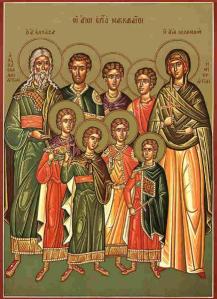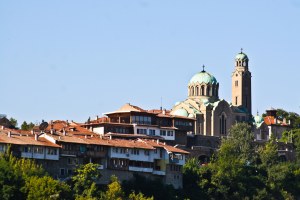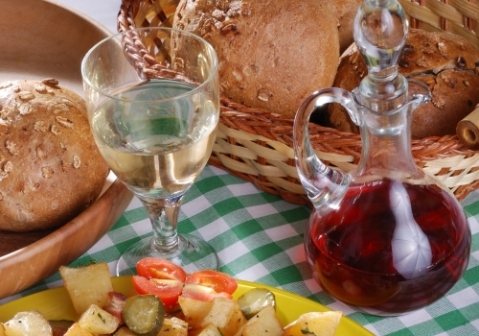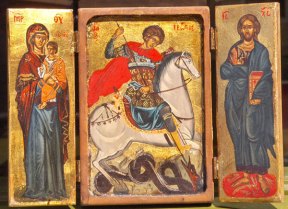I ♥ Maccabees (and the Virgin Mary)
02.08.2012 § Leave a comment
 The days from August 1 to 12th are celebrated in the Bulgarian Orthodox calendar as the days of the Holy Maccabean martyrs – a woman, her seven sons and their teacher, who were all martyred in the 2nd century BC.
The days from August 1 to 12th are celebrated in the Bulgarian Orthodox calendar as the days of the Holy Maccabean martyrs – a woman, her seven sons and their teacher, who were all martyred in the 2nd century BC.
According to tradition, each of the Maccabean days corresponds to a month of the year, with August 1 being September, August 2 – October and so on. Legend has it that the weather on that day will predict whether its corresponding month will be mild or harsh for the crops.
Entering a Bulgarian Orthodox Church
24.07.2012 § 2 Comments

When travelling in Bulgaria, you’ll be hard-pressed to find a city or town without a church as a significant landmark. The Orthodox church was a haven for Bulgarian language and culture during the almost 500 years of Ottoman dominion and its buildings tend to be the source of much local pride. Many churches feature prominently on walking tours and tourist information sites and you’ll likely find yourself entering church after church during your stay. « Read the rest of this entry »
Words for Relatives in Bulgarian
05.06.2012 § 10 Comments
Bulgaria is a place where you cannot be farther than 500 km away from your family, no matter how hard you try. Families often live in the same area or, if they don’t, one can always take a quick holiday to visit the folks на село (na selo, meaning “back in the village”). In fact, children often spend the summer months with one or the other set of grandparents somewhere in the country: in a village, a town or a small city.
The centuries-old familial traditions and bonds are reflected in the Bulgarian language. Much like the proverbial Inuit and their many words for snow, there are five different words for “uncle” in Bulgarian, four for “aunt”, three for “brother-in-law” and four for “sister-in-law”.
The Footprints in the Butter: Bulgarian Jokes
04.06.2012 § 1 Comment
In Bulgaria, the concept of a виц (vitz, a joke/funny story/anecdote) is very highly developed. Vitzove may be directed at politicians, nationalities, occupations, family members, or famous characters. Typically longer than English jokes, vitzove begin with a set-up, and may involve telling a long and elaborate story. As with all culture-specific issues, I hope you don’t find the translations too cumbersome or dense. This is just a random smattering so you know a Bulgarian joke when it’s your turn to tell one.
Drinking With Bulgarians
27.05.2012 § 2 Comments

If you’re ever in Bulgaria, and you’re doing travel right, you *will* find yourself drinking in the company of Bulgarians. Whether it’s in a restaurant with dinner, in a bar, in a city park, or on a beach slash mountain peak, here are a few essential tips.
Bulgarian Names and Naming Customs
26.05.2012 § 2 Comments
 Bulgarian given names are taken from a variety of sources. Biblical, Greek and Latin (like much of Europe), but also Slavic and Protobulgarian names abound among the population, with various regional varieties and pronunciations.
Bulgarian given names are taken from a variety of sources. Biblical, Greek and Latin (like much of Europe), but also Slavic and Protobulgarian names abound among the population, with various regional varieties and pronunciations.
Geórgi (George), Iván (John, pronounced “ee-VAN”, not “I-vuhn”) and Dimítar are the three most popular boys’ names in Bulgarian. The first two are Biblical, after St. George and St. John the Baptist, respectively, while the last is the name of an important Orthodox military saint, St. Demetrius of Thessaloniki, and is distantly related to the Ancient Greek goddess Demeter.
